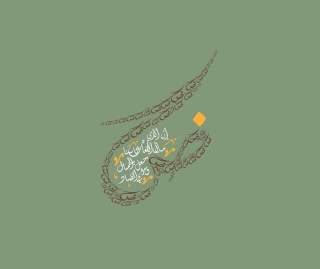How to Transition Easily Between Modern Standard Arabic and Dialects?

How to Transition Easily Between Modern Standard Arabic and Dialects?
Arabic is a language rich in diversity, with a significant difference between Modern Standard Arabic (MSA) and the various regional dialects. This can pose a challenge for learners who wish to switch between dialects and MSA. Whether you're starting with a dialect and transitioning to MSA or learning MSA first and switching to a dialect, it is important to follow certain strategies to make this transition smooth and effective. This article explores how to successfully transition from dialects to MSA or vice versa.
1. Learn the Basics First: Build a Strong Foundation
Before transitioning between dialects and MSA, it's essential to have a strong foundation in Arabic. If you're learning a dialect, you should first focus on MSA. MSA shares some similarities with regional dialects in vocabulary and structures, but it is more formal.
-
MSA as a Foundation: Learning MSA is essential because it serves as the foundation for understanding sentences and words. Once you become familiar with MSA, switching to a dialect becomes easier.
-
Master Vocabulary and Grammar: You need to master basic grammar and vocabulary in MSA, which will be useful when switching to dialects.
2. Transition from Dialects to MSA
If you started with a dialect, you might face difficulties understanding MSA due to the differences in vocabulary and grammar. However, you can overcome these challenges by following a few well-thought-out tips.
Tips for Transitioning from Dialects to MSA:
Start Learning MSA Gradually
It's best to begin learning MSA step by step. Start with basic vocabulary, then move to simple sentences, and gradually learn more complex grammar rules.
Understand the Vocabulary Differences
While many words are similar between MSA and some dialects, there are also many words that are entirely different. For example, the phrase "Good morning" might be the same in MSA, but in some dialects, local words might be used, and you will need to learn those separately.
Listen to Content in MSA
An effective way to learn MSA is by listening to content in MSA. You can listen to news programs like "Al Jazeera" or "BBC Arabic," which will help you improve your pronunciation and understanding of MSA.
Practice with Native MSA Speakers
Try to speak with native MSA speakers. Engaging in daily conversations with people who speak MSA will help improve your skills.
3. Transition from MSA to Dialects
If you've learned MSA first and want to switch to a dialect, you might face challenges understanding the pronunciation and vocabulary used in different dialects. Arabic dialects can vary significantly in pronunciation and sentence structure.
Tips for Transitioning from MSA to Dialects:
Choose the Dialect You Want to Learn
The first step in transitioning from MSA to a dialect is choosing which dialect you want to learn. Whether it's Egyptian, Levantine, Gulf, or Moroccan, you need to choose a dialect to focus on, as they differ greatly in vocabulary and pronunciation.
Expose Yourself to Content in the Chosen Dialect
Listening regularly to content in the chosen dialect helps you adjust to the pronunciation and common expressions used. You can watch TV shows, movies, or follow YouTube channels or podcasts in that dialect.
Focus on Common Words in the Dialect
You should focus on learning common words used in your chosen dialect. Some words in dialects differ entirely from MSA, so you will need to learn these separately.
Engage with Native Speakers of the Dialect
The best way to learn a dialect is to interact with native speakers. You can use apps like "HelloTalk" or "Tandem" to find language partners who speak the dialect you wish to learn.
Flexibility Between MSA and Dialects
It’s important to understand that many speakers switch between MSA and dialects effortlessly. If you have difficulty understanding a certain dialect, don't hesitate to use MSA.
Switching between dialects and MSA is an enjoyable challenge for learners. Whether you start with a dialect and switch to MSA, or begin with MSA and learn a dialect, it is essential to follow well-planned strategies. With time and consistent practice, you will be able to move seamlessly between dialects and MSA, expanding your skills in Arabic.
 The Arabic Language
The Arabic Language The Dhad Language
The Dhad Language Dialects and Modern Standard A...
Dialects and Modern Standard A... How to Start Your Journey in L...
How to Start Your Journey in L... The Best Ways to Learn Vocabul...
The Best Ways to Learn Vocabul... 5 Basic Grammar Rules for Begi...
5 Basic Grammar Rules for Begi... Learn Arabic Effectively: The...
Learn Arabic Effectively: The... Learn Arabic Easily with the B...
Learn Arabic Easily with the B... Overcome the difficulty of wri...
Overcome the difficulty of wri... Arabic Proficiency Test: An In...
Arabic Proficiency Test: An In... From Beginner to Fluent: Maste...
From Beginner to Fluent: Maste... 25 Essential Phrases You Need...
25 Essential Phrases You Need... One Tool, Amazing Results: Lea...
One Tool, Amazing Results: Lea... ake Social Media a Learning To...
ake Social Media a Learning To... Discover How to Determine Your...
Discover How to Determine Your...